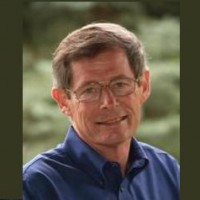James Bowyer, Dovetail Partners Inc
 James Bowyer
James Bowyer
Responsible Materials Program Director – Dovetail Partners, Inc.
Our mission is to provide authoritative information about the impacts and trade-offs of environmental decisions, including consumption choices, land use, and policy alternatives. We seek to challenge concerned and motivated “thinkers, effect positive change and quickly as possible, and provide objective information in an accessible format that clarifies complex issues and increase people’s understanding and capacity to make good decisions.
What aspect or aspects of the VFVC initiative will have the most lasting value for your organization, the forest or the state?
VFVC showed that rapid change in the forest sector is possible with inspired leadership involving multiple stakeholders and significant funding. Evolutionary change is not a given; there is, and was for a time through VFVC, a better way.
What new experience have you had recently that impacts the way you view Minnesota’s forests?
I recently had an opportunity to visit, with a team of land managers, the forests of central Colorado, where a 40-year history of non-management has negatively impacted the forests, forest values including recreation, and the wood products industry. The wood products industry has, in fact, all but disappeared from Colorado resulting in a situation where land managers have few management options; as an example, the Forest Service is paying $2,000 per acre and more to clear mountain pine beetle killed timber with no prospect of an economic return from trees removed. When I view Minnesota’s forests in this context I am reminded how important it is to actively manage our forests in order to leave for future generations healthy forests, ecological values, and robust forest-based economies.
In what way or ways do you see the work continuing that grew out of the VFVC initiative?
Work continues in a number of ways, including the MyWoods website, the recent carbon conference, legislative initiatives stemming from knowledge gained through the VFVC initiative, heightened awareness and increased attention to ECS in forest management, and a number of activities related to biomass energy development in the state.
What do you hope Minnesotans perceive about their forests today?
I would hope that Minnesotans view healthy, unfragmented forests as vitally important and that they recognize the essential relationship between a healthy economy and forest-based communities and a healthy sustainable environment.
